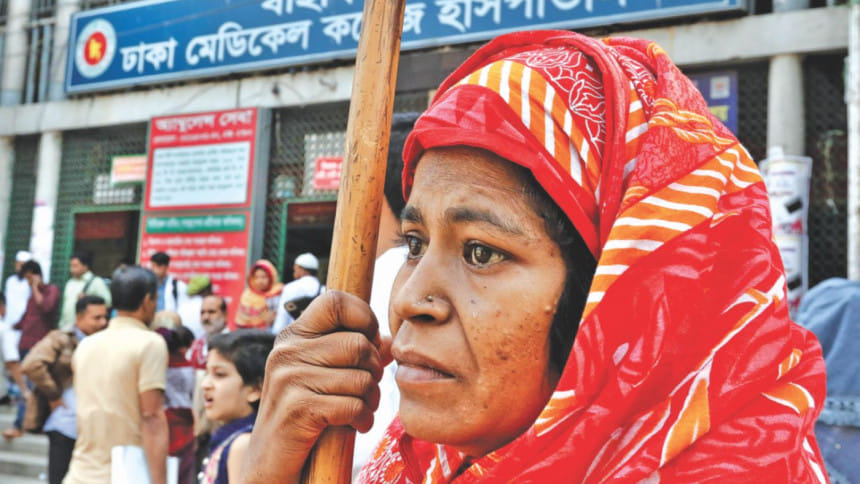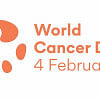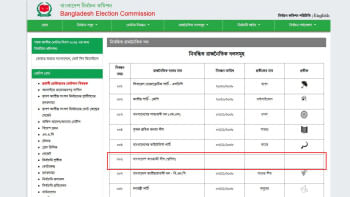Cancer Care Services: Ridiculously inadequate

Even though cancer is a major cause of death and much physical, financial, mental and emotional suffering, the current situation of cancer prevention and treatment in the country is ridiculously inadequate, claim health experts.
A national cancer registry, a very basic aspect that can aid in better diagnosis and treatment of the diseases, is not in place to document and analyse the trend of various forms of cancer.
This situation persists despite the fact that according to the International Agency for Research on Cancer report last year, about 1.08 lakh people die while 1.5 lakh people develop cancer every year in Bangladesh.
At any given time, there are an estimated 12 lakh cancer patients in the country, says Dr Habibullah Talukder Ruskin, Associate Professor and Head of Cancer Epidemiology at the National Institute of Cancer Research and Hospital (NICRH).
“Despite this staggering number, there are sadly only around 500 beds for cancer patients in the public hospitals,” he told The Daily Star on January 28.
Taking into account both the private and public sectors, there are only around 200 cancer specialists in the country, which is too insufficient a number to meet the needs of cancer patients, he says.
“Less than a third of all cancer patients can avail treatment,” he further states, adding that the rich and well-to-do mostly go to private hospitals or abroad for treatment, while the poor go to the public hospitals. Many die with inadequate or no treatment, he adds.
Cancer is a disease involving abnormal growth with the potential to spread to other parts of the body. Some of the common factors leading to cancer, says Ruskin, are chemical-tainted food, obesity, low level of physical activity, consumption of tobacco, betel nut and alcohol, and air pollution.
Other factors like Hepatitis B and C, lack of hygiene during menstruation, HPV (a sexually transmitted infection), child marriage, birth of too many children within short gaps and not breastfeeding babies can also contribute to cancer, he added.
LACK OF VISION
Prof Dr Rashid-E-Mahbub, Chairman of the National Committee on Health Rights Movement, says that the rising trend of cancer is not new in the country. However, the authorities don't have a vision to address this threat.
Developed countries prioritise prevention and early detection of cancer over treatment, he adds.
There should be a system that makes it mandatory for everyone after a certain age to be screened for cancer. “This is extremely important because the chance of recovery is higher if cancer is detected early,” he adds.
In Bangladesh, most of cancer cases are detected at an advanced stage when the chance of recovery is thin, says Mahbub, former Pro-Vice Chancellor at the Bangabandhu Sheikh Mujib Medical University (BSMMU).
The Ministry of Health and Family Welfare has planned on establishing a 100-bed cancer hospital in each of the eight divisions, an important step forward, says Mahbub, but he also asks if initiatives have been taken to train adequate cancer specialists.
“Well-equipped hospitals and expensive machinery will be of no use without adequate cancer specialists and related staff,” he adds.
Prof Dr Sabera Khatun, Chairman at the Department of Gynecological Oncology at BSMMU, agrees. She says that public hospitals, mainly NICRH and BSMMU, remain seriously overcrowded by cancer patients due to shortage of cancer centers and specialists.
“If a patient requires radiotherapy or surgery, he or she has to wait for months to get an appointment. Thus, the patient's situation gets worse,” she says.
INCONSISTENCIES IN CANCER EDUCATION
According to public health experts, there are three major treatment methods of cancer – surgery, radiotherapy and chemotherapy. All of these require specialisation. Radiation oncology is treated as the main study of cancer in Bangladesh, while there are courses for surgical oncology course, but almost nothing on medical oncology (chemotherapy).
In Bangladesh, radiologists are considered skilled enough to offer both radiotherapy and chemotherapy services, a notion that is outright harmful because chemotherapy (medication for cancer) requires specialisation, state health experts.
“Our authorities are not thinking about these issues clearly,” Rashid-E-Mahbub told The Daily Star.
According to NICRH officials, in Bangladesh, only around 10 to 12 doctors specialised in cancer studies every year.
NICRH, BSMMU and 19 other public medical colleges have facilities to provide cancer treatment and education. However, only five medical colleges, apart from NICRC and BSMMU, actually run the postgraduate cancer studies programme. Most medical colleges only offer courses on radiation oncology, say officials at NICRH.
Training on histopathology and cytopathology are very important for cancer screening, but there is limited focus on them, say Dr Habibullah Ruskin. Some short-term courses on histopathology and cytopathology were conducted under a programme of the World Health Organization in 2004 but then even that stopped, he adds.
“We need to train health personnel, including those posted at medical colleges, and district and upazila hospitals across the country, on cancer screening,” says Dr Ruskin.
The government will to need to establish a strong network of cancer centers and related NGOs that will work in unison for cancer awareness and prevention, he adds.
“There needs to be a holistic approach in cancer control. Anything ad hoc will not work,” concludes Prof Rashid-E-Mahbub.

 For all latest news, follow The Daily Star's Google News channel.
For all latest news, follow The Daily Star's Google News channel. 





Comments